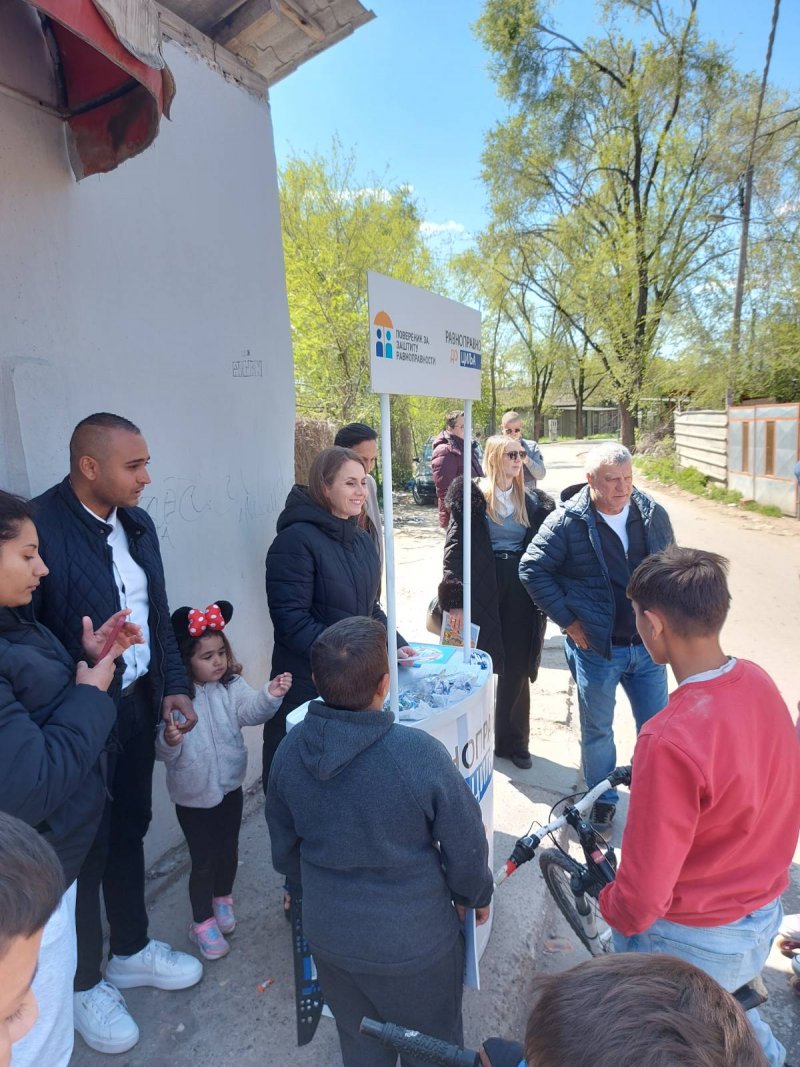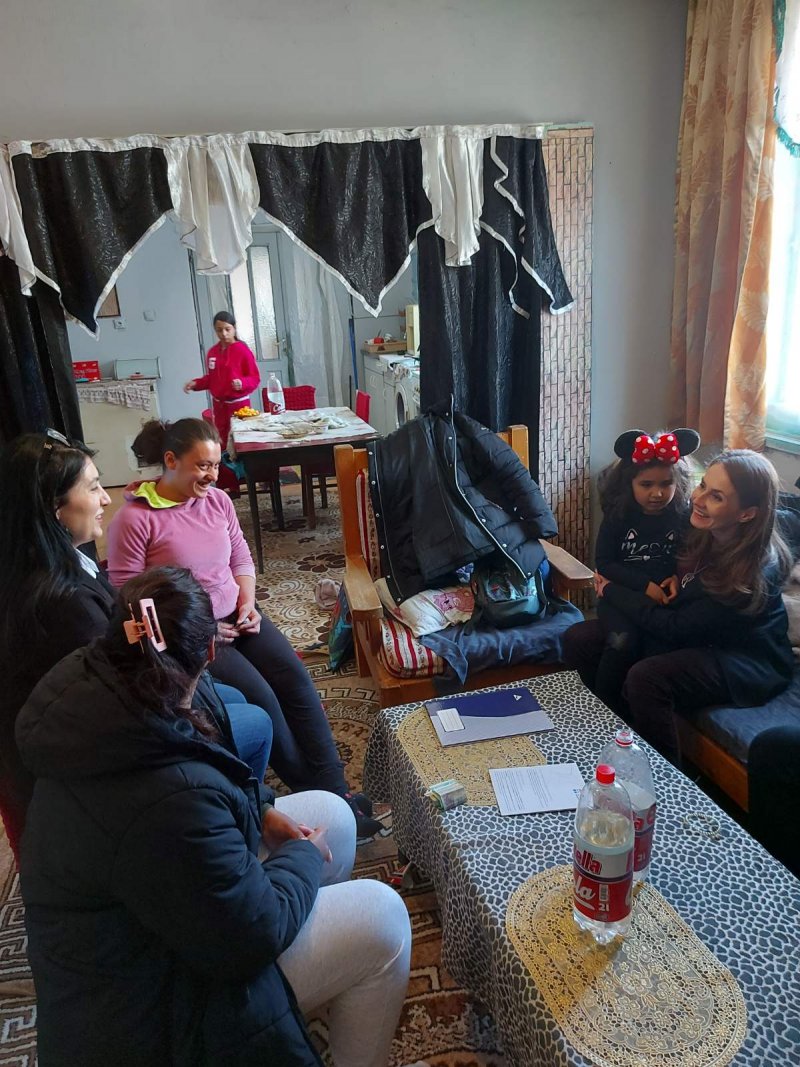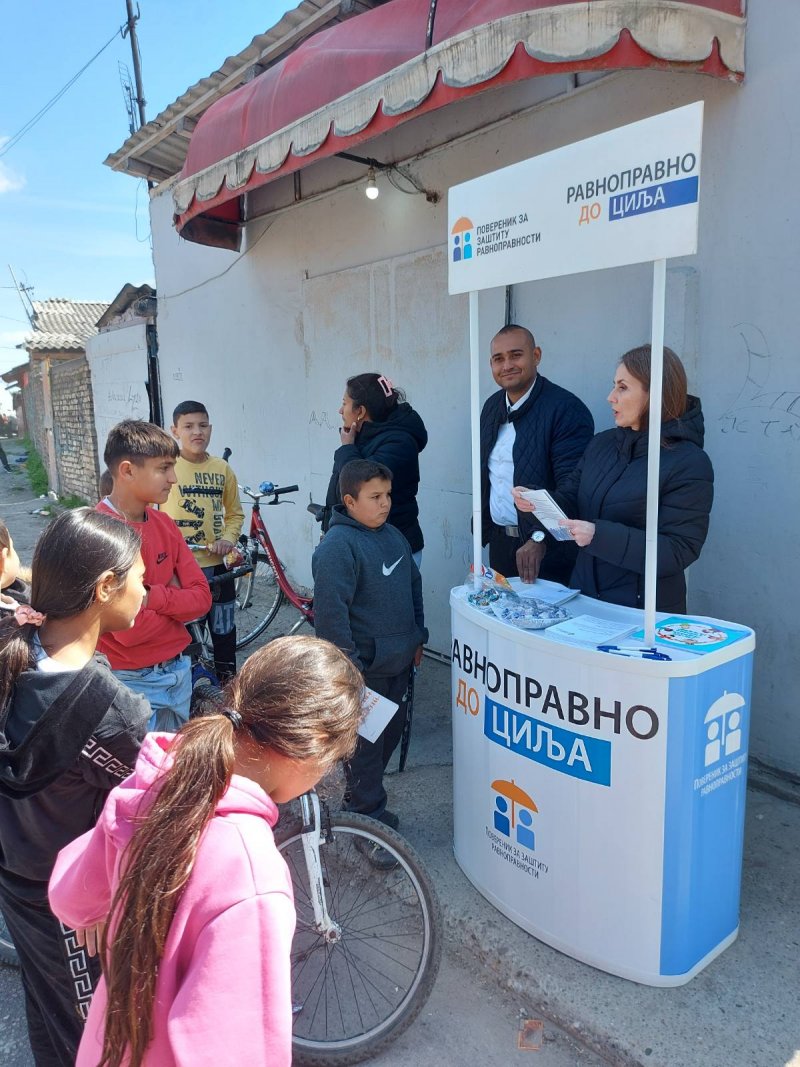International Roma Day is an opportunity to once again highlight the challenges that Roma people still face in all areas of life, despite certain improvements — especially Roma women, who often lack support for education or are forced into early marriages, said the Commissioner for the Protection of Equality, Brankica Janković, during her conversation today with residents of the Veliki Rit settlement in Novi Sad.
The Commissioner’s long-standing practice indicates that Roma people are exposed to discrimination in nearly all aspects of social life. Many complaints relate to insults and humiliation, while negative attitudes and prejudices toward Roma are increasingly expressed via social media. When it comes to Roma women, they are often subject to multiple discrimination — both on the basis of gender and ethnicity — and are at greater risk of poverty and limited opportunities in the labor market. Testimonies from the “Case Study on Child, Early and Forced Marriage,” compiled by the Roma Women’s Network of Serbia, point to the prevalence of this practice within the Roma population. It is deeply troubling, in the third decade of the 21st century, to hear a young woman say: “My parents made an agreement with my future in-laws that I would get married. They simply told me I was moving in with them and wouldn’t be going to school anymore.”
As a member of the National Coalition to End Child Marriage — an issue not exclusive to the Roma community — I continually emphasize that this problem requires a systemic and coordinated approach, because child marriage endangers the lives and futures of both girls and boys. It deprives them of the ability to make decisions about their own lives, disrupts their education, and makes them more vulnerable to violence, discrimination, and abuse. Another significant issue is the inadequate treatment and poor understanding of the complex situation of young Roma women, who often have limited freedom in choosing partners and deciding when to have children. In addition, we must not ignore the problem of inadequate treatment in gynecological and obstetric clinics. Although treatment has improved following recommendations issued by the Commissioner’s office, many Roma women still report — as highlighted in the aforementioned study — experiencing worse and unequal treatment before, during, and after childbirth, Janković added.
The Commissioner emphasized that education is crucial for all children, and especially for Roma children, as a means to improve their social and economic position — a point she stressed in her conversation with the residents of the Novi Sad settlement. The importance of Roma education for achieving equality in society is supported by the majority of respondents (85%) in the Commissioner’s research “Perceptions of the Roma Community on Discrimination”, which also showed that 29% of respondents see children as the most discriminated-against group within the Roma population.
It is not enough to merely implement legislation and adopt measures — joint and continuous engagement is needed from all of us, both institutionally and individually, in order to improve the position of Roma people and contribute to a society of solidarity, humanity, justice, and equality, Janković concluded.




